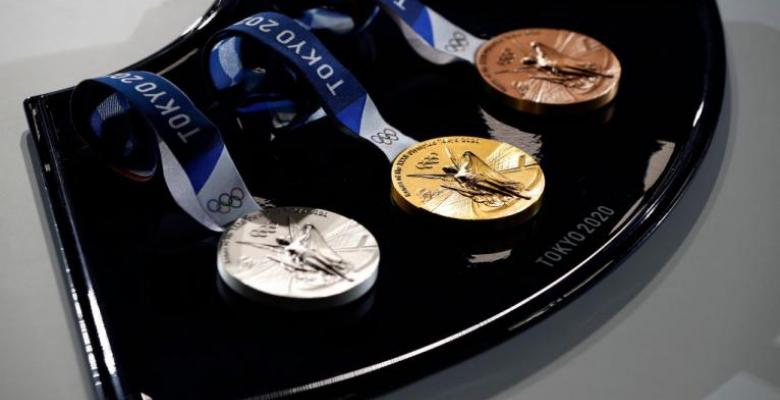Medal Table: How many wrongdoings are committed in your name!
especiales

The International Olympic Committee (IOC), in its fifteenth session, held in Stockholm in 1912, agreed upon the creation of a roll of honor by nation at the end of the competitions. A score would be given to each of the first six in each event and, by adding up the total, the one with the highest score would win the Games.
The IOC did not take long to revoke the agreement, especially due to Coubertin's conceptions: the implementation would damage the spirit of the event and the embrace between peoples.
“But it exists and in what way…,” some people may point out to me. They are right. Many have written some of the truth about this resurrection. For example: “The press, sports organizations and institutions continued to compile the medal table, based on the awards achieved by the countries, according to various scoring criteria. It prevails that the winner is the nation with highest number of gold medals.” Lack of depth, let’s go to the cause.
This criterion was instituted unofficially due especially to political and ideological interests of the powerhouse nations in the sports field that, in general, are the most developed on the planet, empires even, to demonstrate supremacy, to praise their own system of life stolen from so many, gaining sympathy at the expense of talent, which is a hiding place for lack of virtue. It enjoyed and still enjoys enormous journalistic support. Medal table led to the Central Caribbean, Pan American Games, World Cups... even the Paralympic Games!
This scoring system does not actually determine the situation of sport, much less physical culture, in a territory. Coubertin stated on June 9, 1925 in a letter to Franz Reichel that a country is not truly sporting "until the majority of its inhabitants experience the personal desire for sport."
This concept complements what he expressed in the conference entitled Obstacles and aids to physical education in the 20th century (October 1902) by criticizing “...not only the profit motive but also the shameful vanity that makes men seek vulgar laurels and rude satisfactions of self-love, where lies the worst enemy of sports and at the same time, of physical education taken as a whole..."
Beyond economic and political reasons, the fetishism of statistics affects negatively. We must study these numbers to the core. Does the Gross Domestic Product always reflect the progress of a system? It grew in Chile while Pinochet governed, and independent of his murderous base and the gringo support with very marked interest, where did the majority of the resources go? Who benefited from that? Rich became richer while poor became poorer. If something like this happened in such a serious matter, what to expect in the athletic scenario?
It is easy to see how the medals are distributed from the beginning. The United States, England, France, Germany, are always on top, with Japan joining the celebration lately.
Our America, Africa, a large part of Asia, are out of tune. There are exceptions: the rule reaffirmed. The presence of the USSR and the socialist bloc put the medal table game against those using it for evil purposes. Cuba lambasted it in the various battles, without leaving out the great competition, and its drive - including Cuba’s supportive aid, sign of strong sportsmanship – boosted sports in Our America.
I wish to go before that fact to understand things better. Then I will move forward in time. With several questions I want to make you think more clearly about the matter. Why did it take so long for the first aces of Our America in swimming and athletics to appear? The honor went to Argentine Alberto Zorrilla, king of the 400 freestyle in Amsterdam in 1928, and his countryman Juan Carlos Zabala, in the Los Angeles marathon in 1932. Then, the drought hit us back. Zabala competed in the 10,000 in Berlin 1936 and finished eighth. Of course: his countrymen once again showed quality in boxing with the gold medal achieved by featherweight boxer Oscar Casanova.
Second question. Why did Colombia's first gold medal come by the hands of 75 kg weightlifter María Isabel Urrutia in Sydney 2000, when that country debuted at Olympics Games in Los Angeles 1932?
I will refer to the African brothers. Why did Mozambique achieve its first Olympic gold to the rhythm of María de Lurdes Mutola, in the 800m flat, in the Sydney 2000 Olympic Games?
Why did we have to wait until Moscow 1980 for a Latin American athlete to win the first Olympic gold medal? Especially if we take into consideration that women are involved in Olympic Games since Amsterdam 1928. It was María Caridad Colón, from Guantanamo, who broke the ice and, without denying her personal gifts, it would be impossible if a new sort of life had not revitalized sports in her homeland.
Anyone can tell me: one Cuban athlete is also the first Latin American champion of the event: fencer Ramón Fonst, in Paris 1900. And yes, but the resources of his family allowed him to train in Paris, where he trained and learned with many of the best fencers of his time.
A different world was needed, even above the agonal: the one dreamed of by Coubertin where physical culture, culture in general, was for everyone and became a right of the people. That society is far away on this adrift planet, as the Christian thinker Frey Betto describes it.
Translated by Sergio A. Paneque Díaz / CubaSí Translated Staff













Add new comment